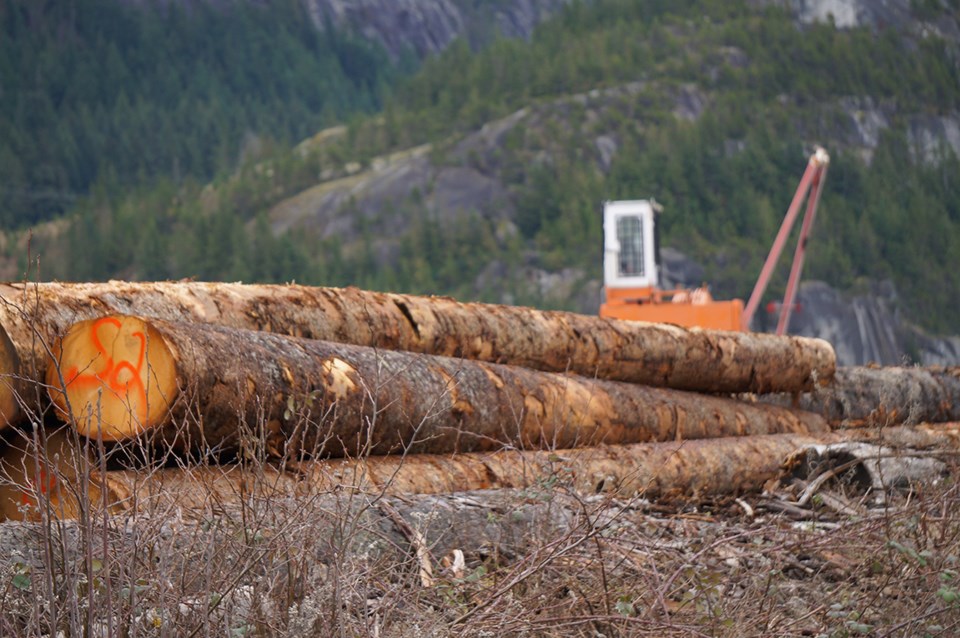Update: Council passed a motion on Feb. 17 to send a letter to the province in support of the Forest Association request for a workaround for a percentage of corridor log exports.
Tourism might be king these days in Squamish, but the district’s long tradition of forestry continues.
The forest industry contributes about 336 logging jobs and an additional 101 full-time jobs in the 1,100,000-hectare Sea to Sky District, according to the Squamish and District Forestry Association. Forestry in the district also contributes more than $50 million a year to British Columbia’s gross domestic product.
At a community development committee meeting on Feb. 3, Squamish council members supported in principle a proposal to further alleviate restrictions from log exports for local forestry companies. The committee heard from members of the Squamish and District Forestry Association, which has been advocating for years for reform of log export restrictions and procedures and is seeking support from council in its negotiations with the province.
About 18 to 32 per cent of logs are exported from the corridor. There are provincial restraints, such as surplus testing, taxes and other procedures that take away the profits from the percentage logging companies export, according to Stirling Angus of the Squamish and District Forestry Association.
The association, which represents forestry interests in the corridor, would like to be able to have 20 per cent of the exports free of procedural restraints, thus allowing greater profitability for logging companies. The companies then could afford more harvesting and delivery to domestic manufacturers.
Harvesting in the Sea to Sky District is more expensive due to tougher terrain and longer distances to harvestable forests.
Bryan Shier of Garibaldi Forest Products said no small or mid-sized company in the corridor could survive on the domestic market alone because companies operate at a loss of about $500 a truckload. “The log export market subsidizes that domestic market because we can sell an uptick in some of that product.”
“It is about $40 a cubic metre more for an export log. You need to sell about 25 per cent of your product on the export market,” Shier said.
Angus added that 25 per cent provides extra revenue that is used to access more timber and create more jobs.
“Right now in most years we have not harvested the full annual allowable cut, which is a sustainable harvest… some of that is timber that is growing that is too expensive without higher prices – and export allows us to get those higher prices.”
The Mid-Coast Forest of B.C. (the Great Bear Wilderness Area) has the exemptions that the association is requesting for its members. Essentially, the association needs an order in council similar to what was granted to the Mid-Coast region and seeks to convince the province to grant the same exemptions.
Contrary to popular belief, according to Angus, exporting logs does not export jobs. “Exporting logs creates and sustains existing jobs,” he said.
The association predicts 546 direct logging jobs and another 164 indirect full-time jobs would be created if the companies were harvesting the entire sustainable, allowable annual cut.
The association hopes that Squamish support for the order in council proposal will be a catalyst for Whistler and Pemberton councils to do the same, thus putting more pressure on the province, according to Angus.
With the committee’s support in principle, the association will now draft a resolution for support that can be ratified at a Squamish council meeting.
After the Feb. 3 meeting, Eric Andersen, who is also with the Squamish and District Forestry Association, said he was very pleased with the committee’s response.
“We’ll now take the case to other local councils and chambers of commerce. We are confident our proposal to the province will benefit both domestic manufacturers and forestry, jobs and forest management,” Andersen said.




